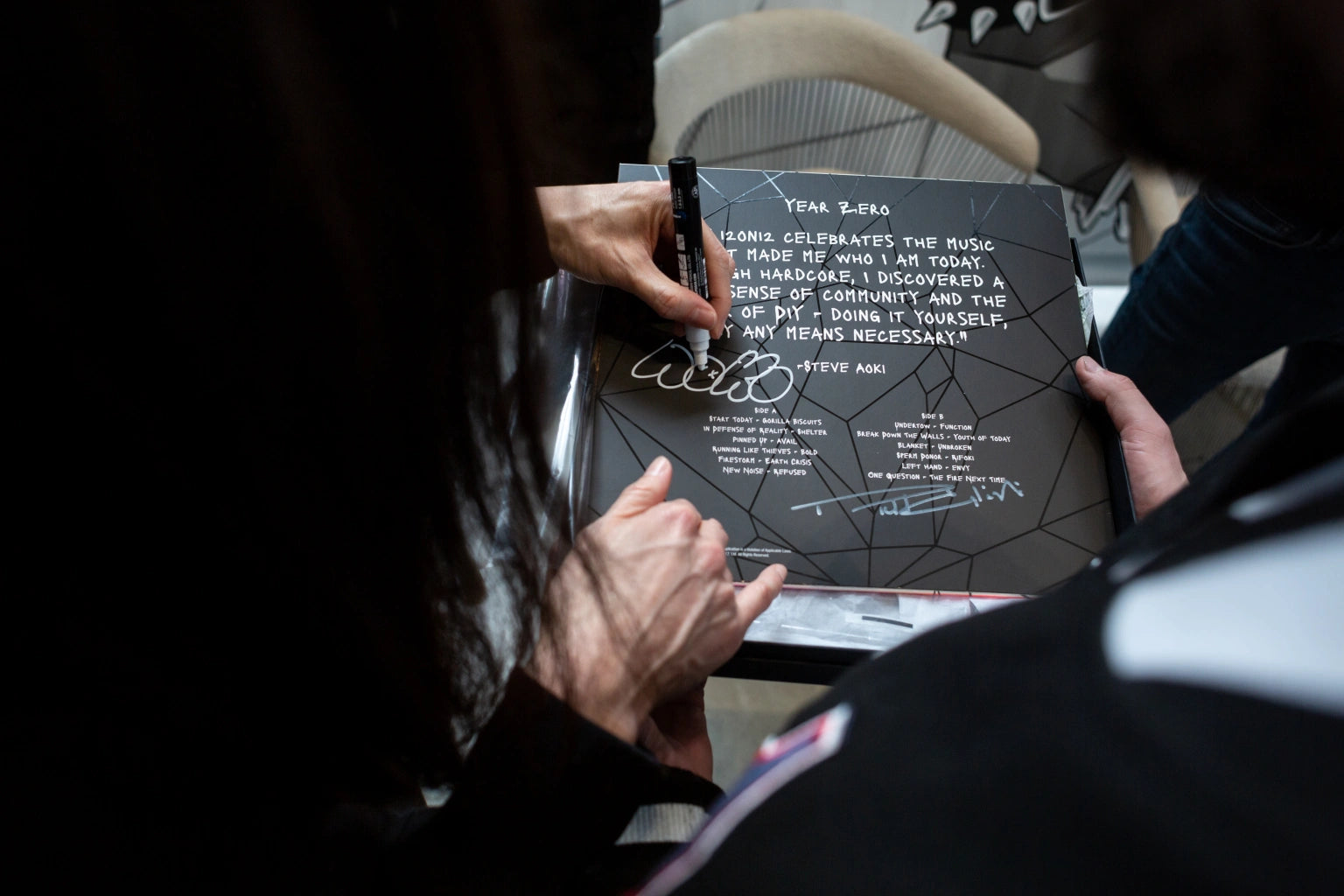DJ Steve Aoki defends his reality

Promoting a new vinyl compilation in Paris, the superstar DJ talks EDM, punk, nepotism, cakes and flying to space.
Confession: I don’t actually like, like EDM. I like techno, and house, and rave, club and all sorts of electronic music. But I’ve never been a fan of the big, two-hands-in-the-air, everybody-scream confetti-cannon Vegas stuff.
Steve Aoki is possibly the most recognizable EDM DJ of all time, regularly playing shows around the world to five-figure capacity crowds. I’m here to interview him, half just to hear about his bonkers life and half to try and ascertain whether his love for club music is real. It’s often hard to escape the feeling that his bombastic brand of dance is a simplified, sanitized—dare I say Americanized—form of rave.
“Yeah, you could say that,” he says. “But that’s what it’s meant to be, though.” He launches into a complex analogy comparing music consumption to studying philosophy at college, where the mainstream is Philosophy 101 and the underground is a class on one theory by one specific philosopher. “I love being a professor in 101 and I love playing in the small rooms, in front of, like, the educated people. Tonight, I’m gonna be doing both.”
We meet at Galeries Lafayette, a department store in Paris on the Champs-Elysées. Aoki is promoting Year Zero, a vinyl compilation of tracks chosen by him with original artwork by the French artist Richard Orlinski. It’s the eighth record released by the vinyl label 12on12, in a series that has also involved Takashi Murakami, Travis Scott, Run DMC and Swizz Beats.
Later, Aoki will play the Accor Arena, a 20,000-capacity sports stadium in the French capital’s 12th arrondissement, hurling birthday cakes through the Parisian night into the faces of his gleeful followers. Later still, he’ll play an afterparty at Phantom, a newly opened club attached to the Accor, throwing yet more cakes in a slightly more intimate setting. More on that later.

Right now, he’s in the Lafayette at the 12on12 record launch, an event promising “an immersive experience that brings together culture and creativity”, including a panel discussion featuring Aoki and Orlinski. After the panel, I’ve been promised a 10-minute interview with the man once named the highest-paid DJ in North America.
Or that was the plan anyway. Once the panel—during which Aoki and Orlinski talk effusively about the merits of physical art forms—ends, a flock forms around the DJ, and he begins posing for photos. His manager tells me this is the first he’s heard about any interview. He also says the whole team is jet-lagged after flying here on the Aoki private jet from a show in Copenhagen last night. Tomorrow they’ll fly to Prague. They need to leave the Lafayette for soundcheck by 5:30 p.m. It’s 5:22. I suggest grabbing Steve now if he’s free.
“Yeah, but he’s not free,” his manager replies while Steve smiles for another selfie. “As you can see.”
There’s a break in the line and I seize the chance to collar Steve. He greets me kindly and authentically even before I’ve told him what I’m doing, and the crowd politely backs off.










